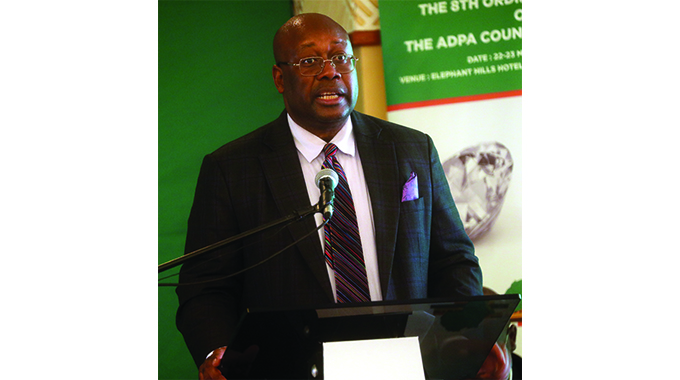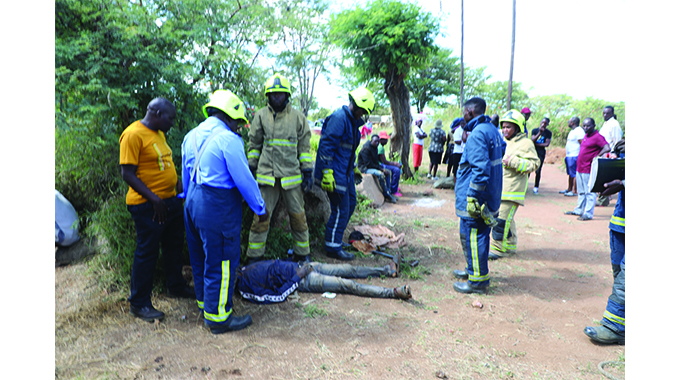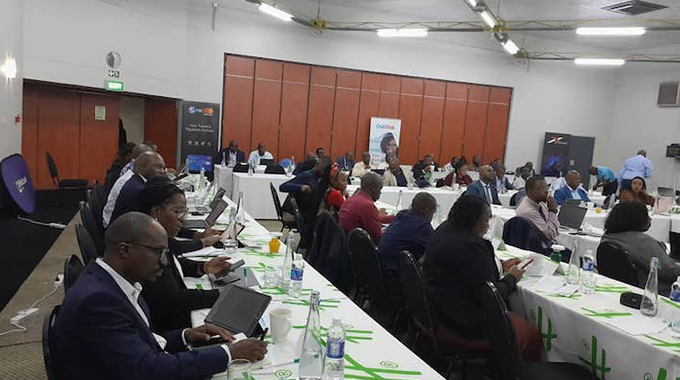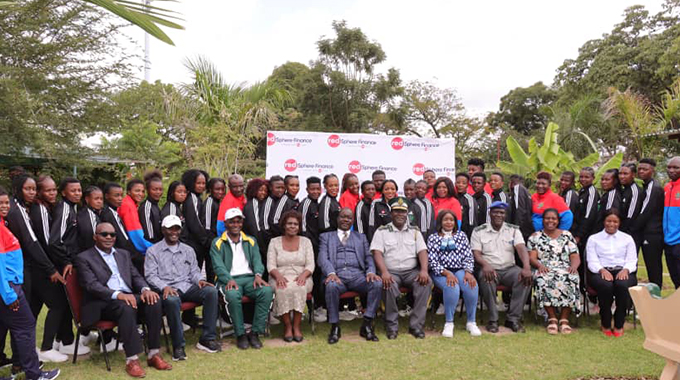KPCS, ADPA chairmanship amplifies Zim’s re-engagement drive

Prosper Ndlovu recently in Victoria Falls
ZIMBABWE’s takeover as chair of the African Diamonds Producers Association (ADPA) and the Kimberly Process Certification Scheme (KPCS) this year has positive implications for the country’s economic diplomacy-focused foreign policy as it amplifies the Second Republic’s image-building and international re-engagement drive.
On Thursday last week Mines and Mining Development Minister, Winston Chitando, took over as chairperson ADPA during the organisation’s 8th Ordinary Meeting of Experts and Council of Ministers Conference, which was officially opened by President Mnangagwa in Victoria Falls.

Minister Winston Chitando
The country is also chair of the Kimberly Process (KP) for 2023 after taking over last November, being deputised by the United Arab Emirates. The chair oversees the implementation of the Kimberley Process Certification Scheme (KPCS) and operations of the working groups, committees, and administration that activate the KP.
ADPA is a 19-member grouping of regional diamond producers while the KPCS is a global body of diamond-producing nations with 52 participants, representing 85 countries, with the European Union and its Member States counting as a single participant.
As the new chair of ADPA, and the KPCS, President Mnangagwa has reiterated the country’s determination and commitment to effectively coordinate and consolidate the growth of the diamond sector, and called for the crafting of deliberate policies that mainstream beneficiation of minerals for increased local benefits. In line with the African Union Agenda 2063, the President has said transforming the diamond sector, already on course in Zimbabwe, must anchor Africa’s modernisation, industrialisation, and development through scaling up higher value addition and beneficiation.
With African producers accounting for about 75 percent of global diamond output, it will be critical for ADPA under Zimbabwe’s leadership to ensure the region’s interests are heard louder and clearly within the Kimberly Process, said President Mnangagwa.
Being chair at such high-level platforms as KP and ADPA is, thus, a strategic opportunity to improve the country’s image and international relations as this allows Zimbabwe to claim its rightful place among the community of nations.
“The implications are highly positive for engagement and re-engagement, it’s also an opportunity to clear our name as Zimbabwe, especially the story of our diamonds so that the global world can understand who we are and what we can offer,” said Minister Chitando.
The positive image-building, international engagement, and the re-engagement cluster is one of the 14 priorities under the Government’s National Development Strategy (NDS1:2021-2025).
Through this, the Second Republic led by President Mnangagwa seeks to leverage improved relations with the international community to lure more investments, promote economic growth and national wealth creation within the context of the global economy.
Across the world, countries increasingly depend on good image, diplomacy, and international standing in the competition for inward investments, tourist arrivals, favorable international trade relations, and increased exports to support job creation and better living standards for citizens.
Outgoing ADPA chairperson and Tanzania Minister of Minerals, Mr Doto Biteko, said he has high hopes in the leadership of Zimbabwe at ADPA and described Minister Chitando as a man who understands the diamond industry well.
“With the new team, ADPA will be able to work closely with member states for the growth of diamond mining. We expect Zimbabwe to continue with the programming and I have trust in the hard work of the incoming chair,” he said.
Zimbabwe assumes chairmanship of ADPA at a crucial stage when the mining body is finalising the appointment of the executive secretariat and adoption of core documents, which will enable the organisation to execute its mandate fully. As such, Minister Chitando has vowed to continue the work that has been done so far and paid tribute to Minister Biteko for the work carried out during the course of his tenure.
Stating the need for the diamond sector to evolve with the changes in the global landscape, he pledged to steer ADPA to play a key role in ensuring that African states are not left behind as demands for sustainably sourced minerals continues to take centre stage.
“It is our hope that the ADPA plays a role in the implementation of FRAME 7 on Supporting Principles for Responsible Diamond Sourcing as Best Practices. This will ensure that African diamonds meet the demands of consumers of today for sustainably sourced diamonds,” said Chitando.
He highlighted that Zimbabwe’s diamond sector was already on a growth trajectory with the country targeting seven million carats by the end of this year.
“We have exploration activities ongoing with indications of positive results, which will further play a role in the future growth of the sector. As a strategic mineral, diamonds are playing a key role in the growth of the Zimbabwean economy,” said Chitando.
Outgoing World Diamonds Council (WDC) president, Mr Edward Asscher, who spoke virtually said Zimbabwe has a mammoth task ahead as chair of KPCS and commended the country for playing a critical role in the revival of ADPA.
“Zimbabwe as the chair of the Kimberley Process this year is having a very difficult and responsible task,” he said.
“The ongoing success of the KP in 2023 and the reputation of the whole diamond industry is now in the hands of the chair.”
Citing the need to harmonise the diverse stakeholder interest in the diamond sector, including the need to take into account downstream impacts on communities, Mr Asscher urged producing countries to ensure their operations are free from civil conflict, violations of human dignity, respect for labour laws and safety, fair wage, and ensuring use of proceeds in building “stronger economies and societies, and more sustainable environments”.












Comments